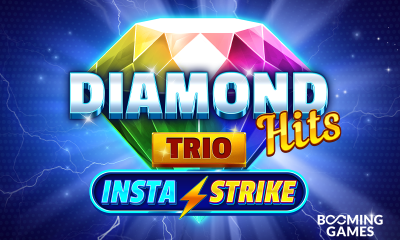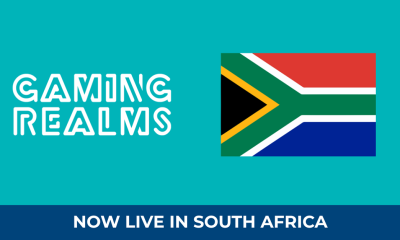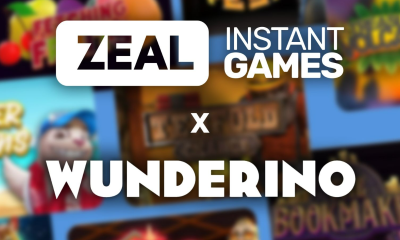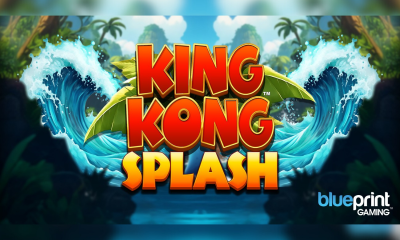Gaming
Make way for the in-game advertising revolution
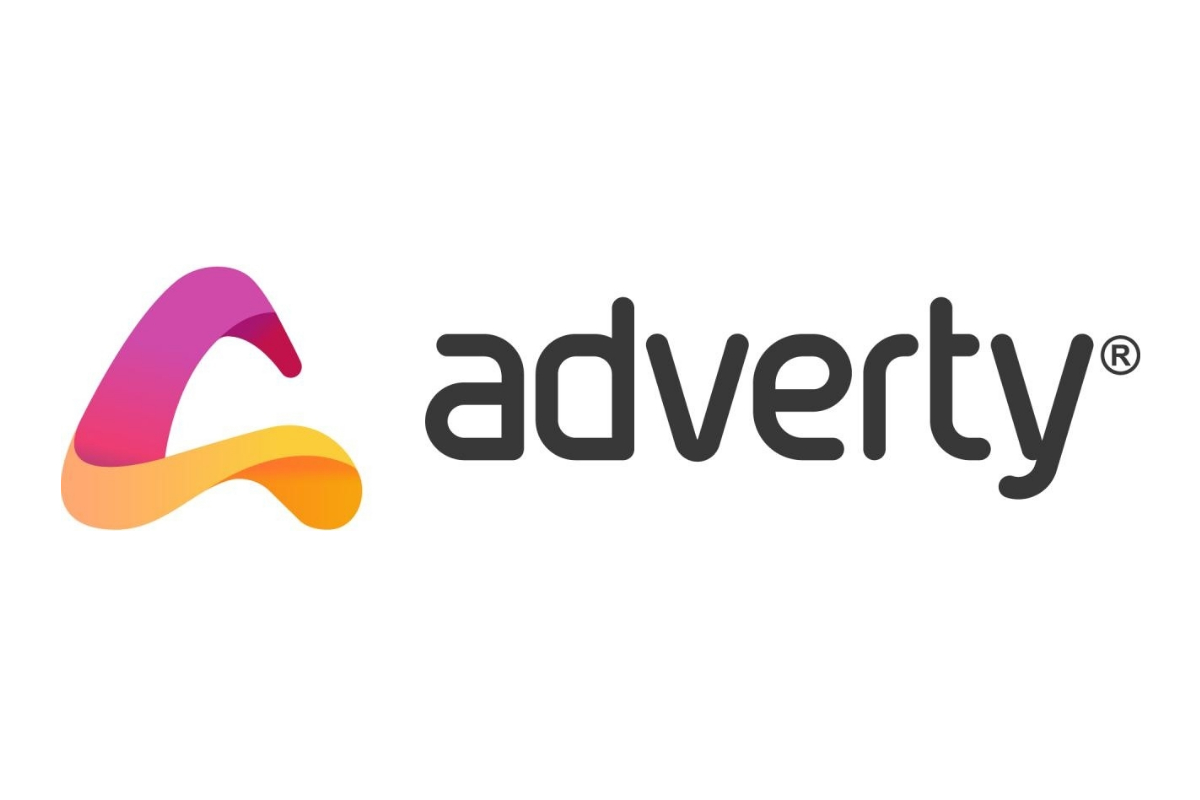
Nicola Halpin, Senior Director of Sales at Adverty, on why brands must wake up to the creative possibilities inherent within in-game advertising
In-game advertising remains unchartered territory for the vast majority of brands, yet a large-scale shift towards seamless and non-interruptive in-game advertising which sits alongside the immersive experience of increasingly popular virtual worlds has already begun.
Indeed, with around three billion gamers worldwide, this industry offers unlimited, lucrative opportunities for marketers looking to upgrade from traditional advertising methods.
In the mobile space, 5G is one of the most exciting developments – heralding greater creative freedom and unlimited possibilities. According to a report from games analytics company, Newzoo, there will be some 2.1 billion 5G-ready smartphones globally by 2023, accounting for 42.7% of active smartphones. The mobile market’s transition towards this fifth generation of mobile network technology has already begun, with countries around the world rolling out 5G networks, and many of the leading smartphone manufacturers having launched flagship 5G smartphones.
Meanwhile, Newzoo’s report also notes that the era of hypercasual on mobile is branching out into exciting areas with new ways to play leading to new ways to pay, including bundles, direct purchases and ad-based revenues.
With innovations such Adverty’s unobtrusive In-Play and In-Menu ad formats – designed to make in-game advertising a powerful performance as well as a branding channel – brands are starting to wake up to the possibilities. They will be pleased that they did: Our recent research into the reception of in-game advertising indicated that respondents preferred ads which blended seamlessly into the gameplay experience – compared to 30% favourability for a standard banner ad, for instance.
It is now possible to reach mobile gamers non-intrusively – to add to, rather than to detract from – the immersive experience. And with lockdowns having led to consumers engaging with mobile gaming more than ever, with Adverty’s traffic, for instance, going up 35%, this is a trend that looks set to stay. Post lockdown, rather than diminishing, this traffic plateaued.
Besides, gaming is an increasingly popular pastime for a much broader demographic than many assume, too, with Nick Sperrin, Chief Client Officer, Dentsu UK, pointing out that DGame, its specialist division set up to help brands reach and engage with gaming audiences was developed “in response to a rapidly changing marketplace which has mass, not niche, potential.”
Despite this, there remains a huge disconnect between brand investment that is pouring into social media, by way of example, versus gaming – despite both areas having broadly similar reach. Gamers are both male and female, and many are mature – with significant spending power.
So, with the technology advancing all the time and 5G offering increased sophistication and creative freedom, it’s time that brands made the most of native in-game placements. By way of example, Adverty’s formats can’t be turned off by ad blockers; they offer brand awareness and brand safety – and they can run programmatically. In-Menu represents a clickable ad unit which can lead gamers directly to offers or purchase, with even automotive brands are becoming active in this space – proving that there is increasing awareness that games are not just played by kids, but by decision makers and money makers, too.
Many play games daily, too, while the eSports category is exploding. So it should come as no surprise to learn that brand safe advertising which is well-received in this context, without disturbing game play, delivers results. For instance, for Unilever brand, Knorr, a clickable banner in the mobile casual game, Subway Surfers, delivered over 5.76 million viewable impressions and almost seven seconds in average view time per impression. Besides this, Adverty’s patented BrainImpression
What’s more, our recent brand lift study with Dentsu Data Labs highlighted the potential impact of in-game executions – with ad awareness up 84% and brand recall up 78%. Clearly there is minimal risk when it comes to putting your money in this space, with advertising that blends in well. It’s becoming increasingly evident that brands ignore the in-game revolution at their peril.
Powered by WPeMatico
Codere Online
RubyPlay and Codere Online join forces to elevate gaming offering in Mexico

RubyPlay, the studio-based content ecosystem, has strengthened its footprint in Mexico through a new partnership with Codere Online (Nasdaq: CDRO), one of the country’s leading digital sports betting and casino operators.
The collaboration sees Codere Online integrate a broad selection of RubyPlay’s most popular titles, including player favourites such as J Mania® Loco Habanero, Grand Express Diamond Class, and Zeus Rush Fever® Deluxe SE. The deal also incorporates content from Koala Games, one of the fastest-growing studios within RubyPlay’s ecosystem, featuring hits like Voltage Blitz® Rapid and Voltage Blitz® Vortex. Codere Online will gain ongoing access to additional content from RubyPlay’s wider studio network as new titles are released.
This partnership reinforces RubyPlay’s expansion across the LATAM region, where its content has been performing strongly with multiple leading brands. At the heart of this growth is RubyPlay’s multi-layered content ecosystem, designed to deliver a diverse and tailored portfolio while benefiting operators of all sizes. The model enables faster delivery cycles, greater portfolio variety, and improved responsiveness to both operator needs and evolving player preferences.
Dima Reiderman, CCO at RubyPlay, commented:
“Partnering with Codere Online represents a significant milestone in our expansion across Mexico and the wider LATAM region. The operator’s strong brand recognition and vast customer base make them an ideal partner to reach even more players. Through our studio-based ecosystem, including Koala Games and Mad Hat Games, we can deliver market-focused content to support Codere Online’s evolving strategy in Mexico and LATAM.”
Sarit Adania, Head of Casino Product at Codere Online, added:
“RubyPlay’s consistently high-performing titles will be a significant addition to our online casino offering in Mexico. By integrating content from both RubyPlay and Koala Games, we are diversifying our portfolio and continuing to deliver the engaging, premium experiences our players expect.”
The post RubyPlay and Codere Online join forces to elevate gaming offering in Mexico appeared first on Eastern European Gaming | Global iGaming & Tech Intelligence Hub.
François LaFlamme
Motorola Becomes the Official Smartphone Partner of FIFA Heroes Game
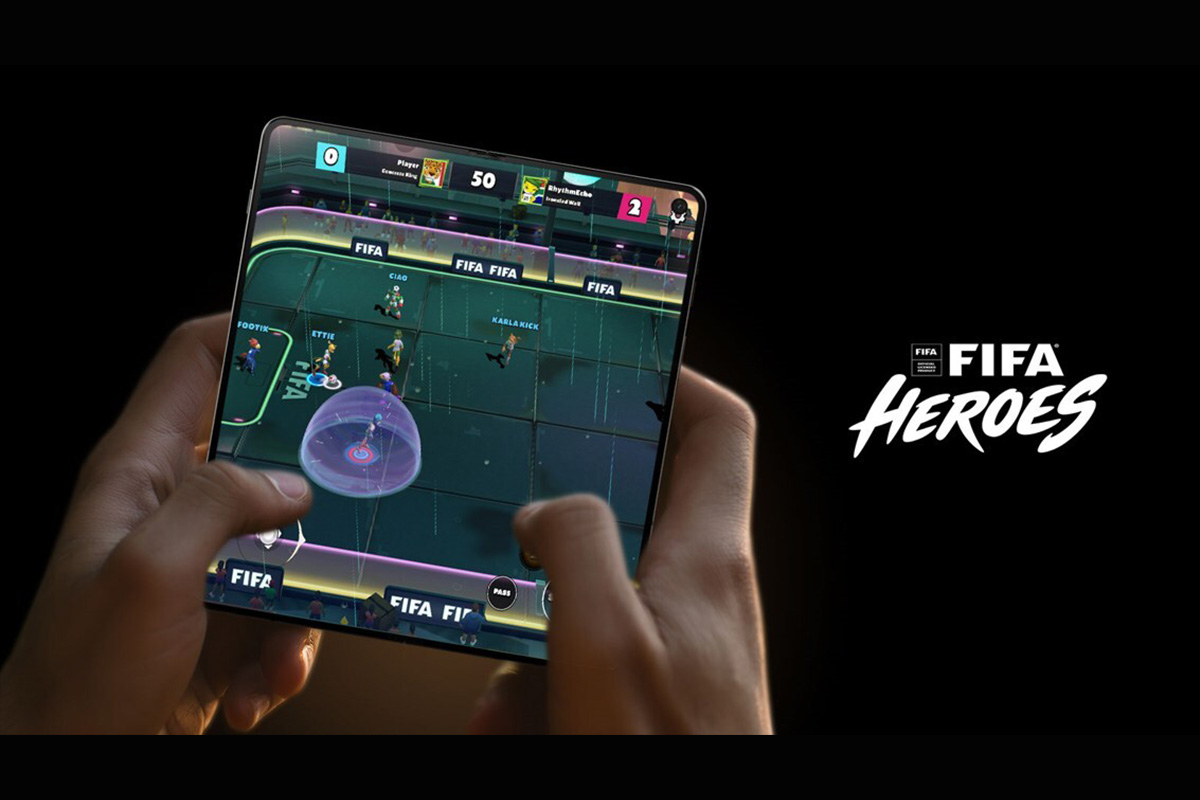
Motorola, a Lenovo company, has become the official smartphone partner of the recently announced FIFA Heroes game, published by Solace. FIFA Heroes is an arcade-style, 5-a-side football title that, for the first time, features real players, mascots and fictional IP characters on the same pitch. This partnership brings together Motorola’s cutting-edge mobile technology and the game’s immersive gaming experience, creating a seamless experience for fans to enjoy the world’s most popular sport in a fun and interactive way.
As the official smartphone partner for the FIFA World Cup 2026, Motorola is committed to bringing the excitement of the tournament directly into consumers’ hands. FIFA Heroes delivers on that promise, offering fans innovative, mobile-first experiences that keep them connected to this unique moment in time.
With this partnership, Motorola’s presence will extend across multiple touchpoints. Motorola will appear directly within the FIFA Heroes game, and many upcoming Motorola smartphones will include instant access to the newest FIFA-licensed mobile game. Fans can also download the game from the Google Play Store, making it simple to play from anywhere.
All Motorola users will gain access to exclusive in-game content designed just for them, including power up tokens and gems, game emotes, a retro razr goal celebration, playable characters, and more. This content is part of a broader collaboration that will unfold through a series of global activations, leading up to and throughout the FIFA World Cup 26, giving fans around the globe new ways to connect with the action, on and off the pitch.
Beyond the content itself, the partnership introduces a gaming experience designed specifically for the brand new razr fold, redefining what a foldable form factor can bring to the gaming space. This exclusive experience optimizes the device’s large 8.1″ unfolded display so that players get an expanded view of the pitch that keeps the action fully in focus. Plus, the extra screen space makes it so that controls can sit comfortably below gameplay for an unobstructed display, and also gives players the flexibility to customise their layout for optimal ergonomics.
“This collaboration goes beyond gaming—it’s about delivering an experience that feels faster, smoother, and more connected for every fan. By working closely with Solace and FIFA, we’ve optimized FIFA Heroes for Motorola devices so players get the best possible performance right out of the box. It’s a powerful way to show how our technology enhances the way people play, connect, and experience entertainment, and we’re excited to share even more in the months ahead,” said François LaFlamme, Chief Marketing Officer at Motorola.
The post Motorola Becomes the Official Smartphone Partner of FIFA Heroes Game appeared first on Eastern European Gaming | Global iGaming & Tech Intelligence Hub.
Bet on Games
Bet on Games Premieres Ranch Robbery — Rugged, High-Octane Crash Experience
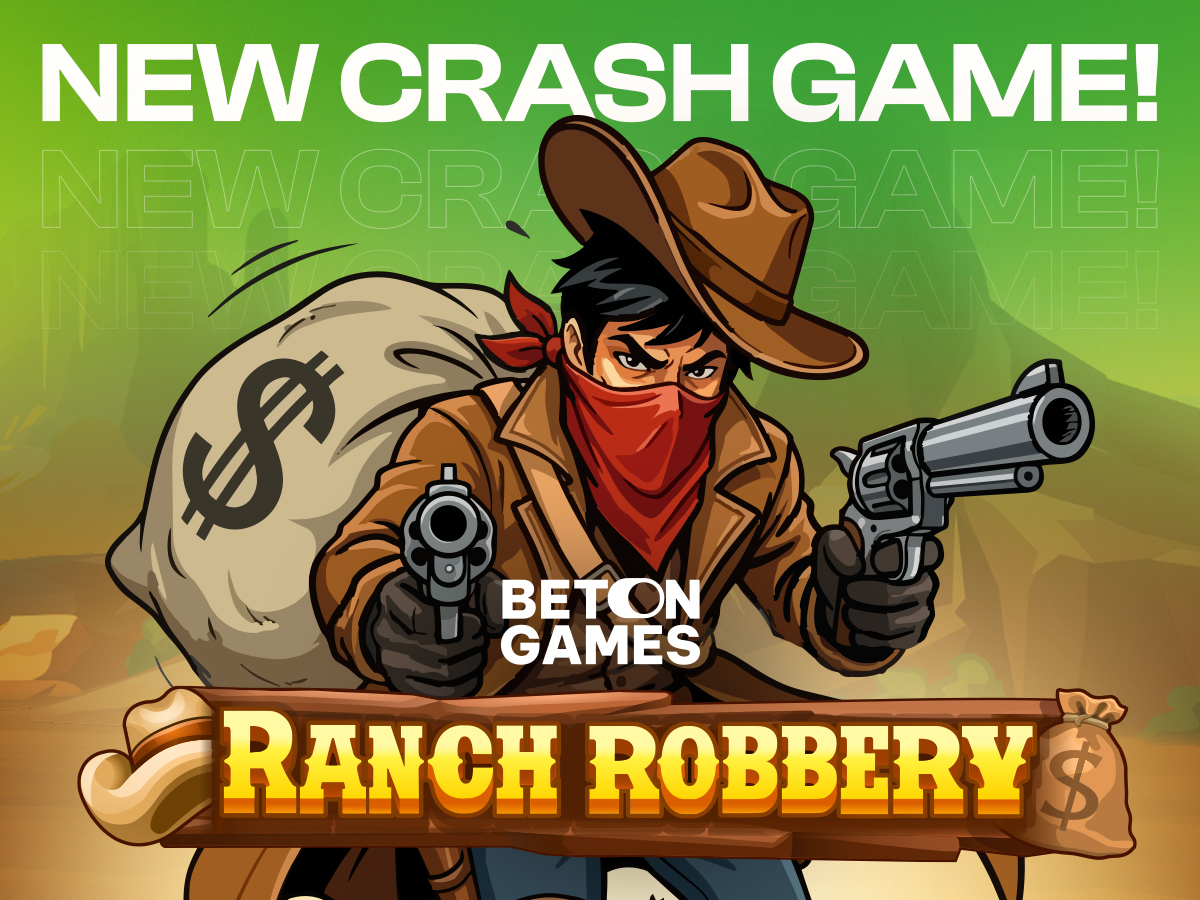
Bet on Games unveils Ranch Robbery, a fresh crash game that infuses the wild spirit of the Wild West into the rapidly expanding instant category. The launch enhances the brand’s crash lineup with an audacious thematic approach and performance-oriented features.
As a key segment within the BETCORE ecosystem, Bet on Games keeps growing its instant and crash portfolio, now surpassing 200+ titles ready for integration. With Ranch Robbery, the brand expands its crash offerings, merging established gameplay mechanics with a unique Western theme aimed at distinguishing itself in competitive environments and captivating action-oriented players.
About the Game
Ranch Robbery takes place in a uniquely designed frontier setting where tension escalates in real time. A cowboy dashes across the ranch as the multiplier rises dynamically. The more extended the run lasts, the greater the possible payout; however, if the escape concludes before cashing out, the wager is forfeited.
Every round lasts merely seconds, resulting in a quick decision-making cycle and continuous adrenaline.
The post Bet on Games Premieres Ranch Robbery — Rugged, High-Octane Crash Experience appeared first on Eastern European Gaming | Global iGaming & Tech Intelligence Hub.
-

 iGaming7 days ago
iGaming7 days agoPRAGMATIC PLAY UNEARTHS PROGRESSIVE MULTIPLIERS IN ROLLING IN TREASURES
-

 Comatel6 days ago
Comatel6 days agoCOMATEL CELEBRARÁ UNA FIESTA PARA CIENTOS DE OPERADORES TRAS FINALIZAR EL PRIMER DÍA DE LA FERIA ESPAÑOLA, INTERAZAR
-

 Booming Games7 days ago
Booming Games7 days agoBooming Games Introduces Instastrike, the Latest Diamond Hits Trio
-

 ELA Games7 days ago
ELA Games7 days agoELA Games Powers the Reels with Retro-Electric Slot “Rapid Wild”
-

 Africa7 days ago
Africa7 days agoGaming Realms Makes South African Debut in Partnership with Hollywoodbets
-

 Alex Green Vice President Games at ZEAL7 days ago
Alex Green Vice President Games at ZEAL7 days agoWunderino Adds ZEAL’s Premium Slots as Partnership Kicks Off
-

 Blueprint Gaming7 days ago
Blueprint Gaming7 days agoNew collect modifiers and dual bonus offering star in Blueprint Gaming’s King Kong™ Splash
-

 Brasil7 days ago
Brasil7 days agoBrasil evita choque fiscal y apuestas entran en fase reputacional en LATAM








